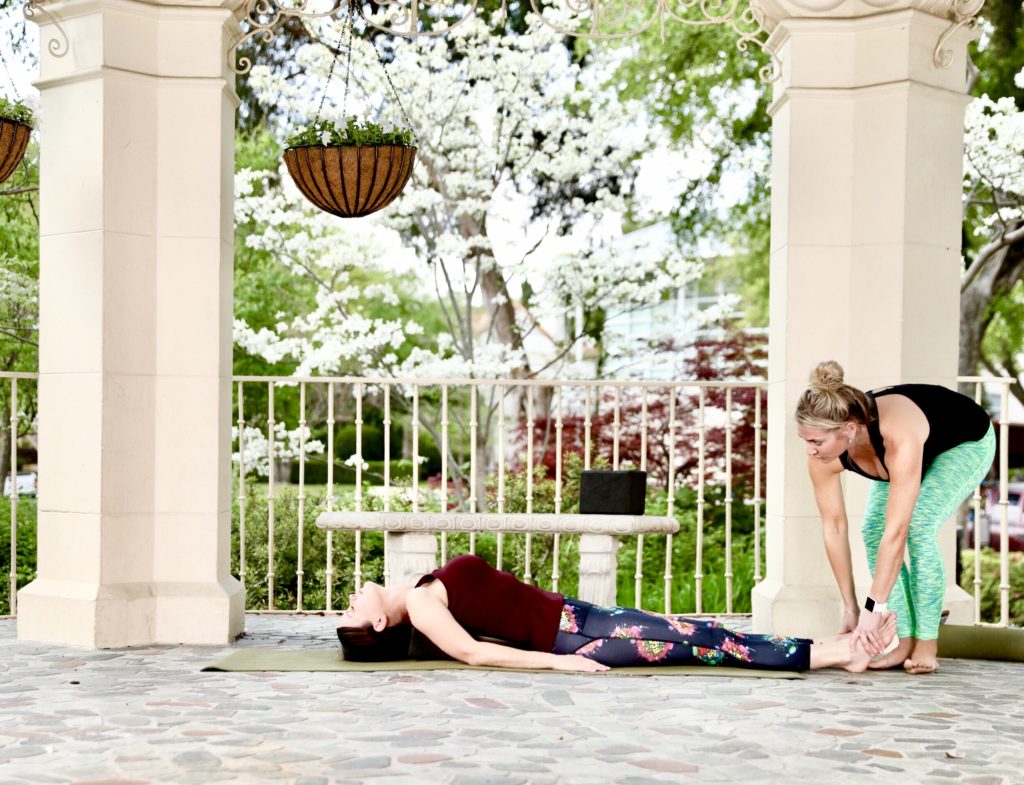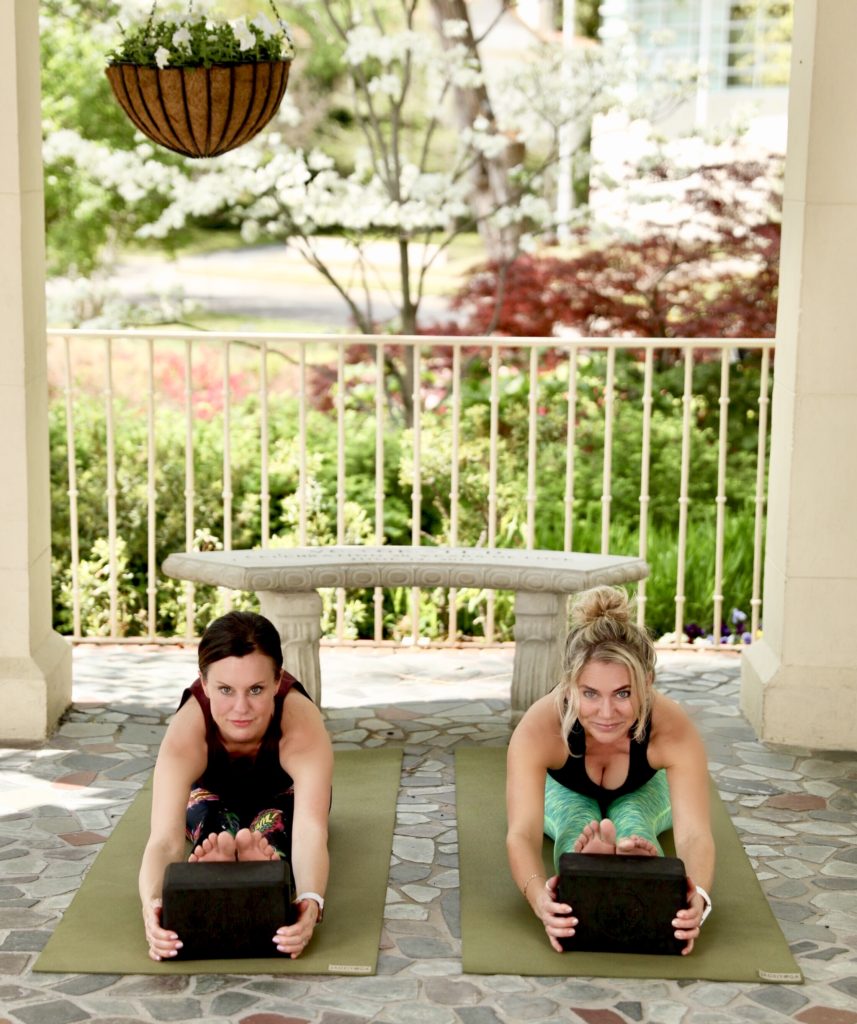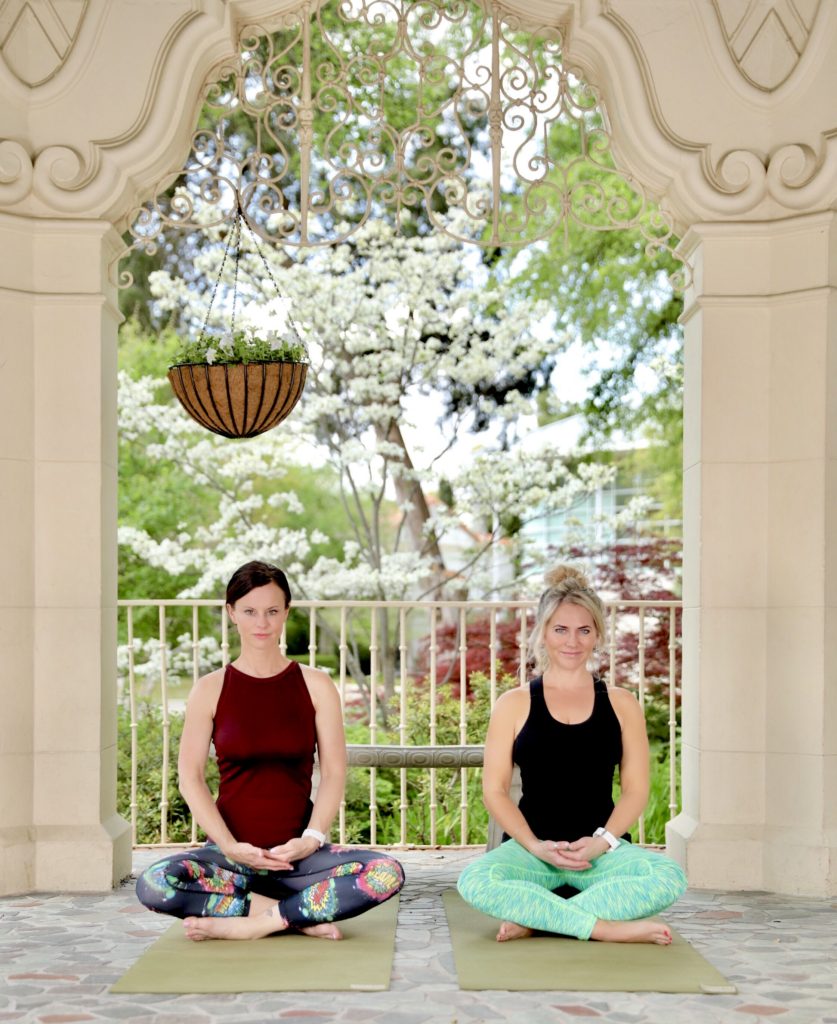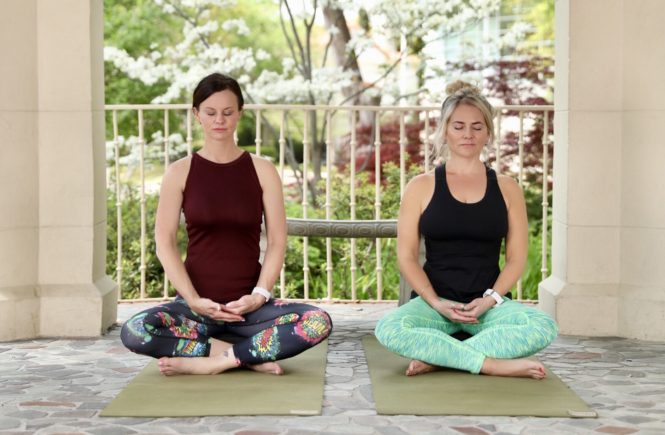As close friends do, Kathy and I have spoken quite extensively over the years about the stress, pressure, and even the occasional (ok maybe not so “occasional”) sense of being overwhelmed we can experience in our day-to-day lives. While there are a million reasons to feel spread thin these days, in the course of teaching yoga over the last 15 years I have noticed something: many of us tend to spend more time justifyingour stress – rather than processingour stress.

We may say we feel (insert adjective here): overwhelmed, under water, anxious, on-edge, etc. What we often follow that statement up with, however, is a qualifier such as, of course I am stressed though/ because (again, insert statement here): I am a working mom, or I travel for my job, or I’m going through a divorce, and so on. Now while the cause of the stress certainly needs to be explored and examined – it does not necessarily need to be explained. Our emotions are our emotions, and no one needs to justify how they feel. Regardless of whether society agrees that we have a “good enough” reason for feeling strain or not, if our body believes us to be in danger (which is the way our body processes stress) the physiological manifestation is going to be the same. This type of tension will show up in a variety of ways, including, but not limited to – rapid heartbeat, tense muscles, low energy, headaches, insomnia, higher blood pressure, and shallow breathing. These, by the way, are ONLY the physicalindicators, we will talk about emotionaland cognitive examples in future posts. Kathy and I will often text each other early in the morning (and I’m saying like, stupid-early, 4:30 or 5:00 AM) because we can’t stay asleep with our subconscious minds prepping for the day ahead. Waking in the middle of the night or early in the morning is not unusual at all and something many people struggle with.

By now, everyone knows that meditation is a wonderful coping mechanism for stress and anxiety. But for many of us, the act of meditation itself can produce great stress! For now, if you are brand new to the practice, start small and give yourself unlimited grace if it doesn’t come to you right away. The biggest misconception about meditation is we sit quietly for a few minutes, our mind goes blank, our heart gets all big and fuzzy, and then nothing bothers us any longer. It is not like that and it is not necessarily the goal either. The goal is simply to forge a better connection to what is happing both around us and inside of us. Here are some simple tips to get started:
- Sit comfortably, legs crossed or in front of you. Try to sit straight but don’t stiffen up, allow the natural curvature of your spine to lead you to an upright but easy position. Relax your arms and find a comfortable place for your hands.
- Eyes can be opened or closed but keep the gaze soft and face relaxed.
- Bring your attention to the physical act of breathing – deep, slow inhalation followed by long, completeexhalation.
- Lastly, observe your mind and try and slow your thoughts. Again, your mind likely won’t stop, so don’t judge your thoughts, observe them, and embrace the opportunity to sit in stillness and embrace the experience of just being.

Reach out with comments, questions, or observations.
Namaste, friends – Love, Abra & Kathy




